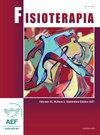¿Quieren los pacientes ir de manera directa al fisioterapeuta? Un estudio para el caso gallego
Q4 Health Professions
引用次数: 0
Abstract
Introduction
The possibility of direct access to physiotherapy has long been advocated by the profession. Understanding the profiles of patients who are more in favor of such access and those who have a greater preference for medical professional guidance or referral will aid in the implementation of new healthcare systems.
Materials and methods
A survey was carried out on the population that attends physiotherapy privately or for health insurance. Of the latter (89 patients), whose referral depends on a medical professional, they were consulted about the preference of medical regimen or not and about the possibility of direct access to physiotherapy.
Results
It is observed that two variables have a more direct impact on the preference regarding the guidance of rehabilitative treatment. Both age (older age) and gender (male) are statistically related to a greater preference for guidance by a medical professional in the rehabilitative protocol, while the female gender and younger population are more inclined to accept guidance by the physiotherapy professional themselves.
Conclusions
There is a significant acceptance for direct access to physiotherapy. Statistically, there is greater acceptance for the physiotherapy professional to guide the treatment among the younger, female population.
病人想直接去看理疗师吗?加利西亚案例研究
长期以来,业内人士一直提倡直接接受物理治疗的可能性。了解那些更倾向于这种途径的患者和那些更倾向于医疗专业指导或转诊的患者的概况将有助于实施新的医疗保健系统。材料与方法对自费或参加医疗保险的人群进行了调查。在后者(89名患者)中,他们的转诊取决于医疗专业人员,他们被问及是否偏好医疗方案以及直接接受物理治疗的可能性。结果观察到两个变量对康复治疗指导的偏好有更直接的影响。年龄(较大)和性别(男性)在康复方案中更倾向于由医疗专业人员指导,而女性和年轻人群更倾向于接受物理治疗专业人员自己指导。结论患者对直接接受物理治疗的接受程度较高。统计数据显示,在年轻女性人群中,理疗专业人员指导治疗的接受度更高。
本文章由计算机程序翻译,如有差异,请以英文原文为准。
求助全文
约1分钟内获得全文
求助全文
来源期刊

Fisioterapia
Health Professions-Physical Therapy, Sports Therapy and Rehabilitation
CiteScore
0.50
自引率
0.00%
发文量
37
期刊介绍:
Publicación Oficial de la Sociedad Española de Fisioterapeutas. Sus páginas ofrecen desde artículos originales hasta revisiones, pasando por el estudio de casos o los actos más importantes relacionados con la especialidad.
 求助内容:
求助内容: 应助结果提醒方式:
应助结果提醒方式:


